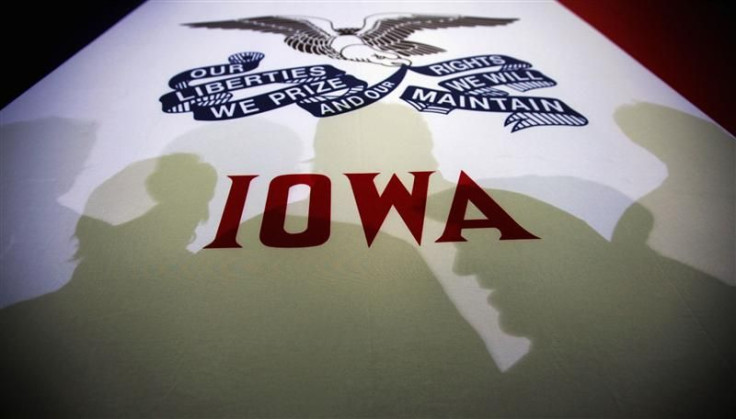Iowa Caucus 2012: A Fordham University Expert Discusses the Election

As the 2012 Republican primary season kicked off with the Iowa caucuses on Tuesday, the International Business Times spoke with Costas Panagopoulos, a political scientist at Fordham University in New York, about who will win and the consequences of various outcomes.
Be sure to read IBTimes' interview with Hunter College political scientist Jamie Chandler as well, and check back throughout the evening for more breaking news and analysis out of Iowa.
IBTimes: Most polls in the past few days have shown Mitt Romney and Ron Paul statistically tied, with Romney slightly ahead. Who do you think will win?
Panagopoulos: The nature of caucuses makes them unpredictable events. It's very telling that Paul and Romney are neck-and-neck in the polls. It suggests significant improvement on the part of Mitt Romney, so if I had to guess, I would guess that his operation on the ground will be effective in persuading caucus-goers. That said, I think we can't dismiss the strength of Ron Paul's supporters and the passion with which they will support their candidate. The dynamics of caucuses are such that people can change their minds before the final votes are tallied. Levels of support are fluid to some extent, so it's going to be a matter of which candidate's supporters can most vociferously express their support for their candidate, and I would expect that Ron Paul could have an advantage there.
IBTimes: Rick Santorum has surged in the past week, and several polls now show him in third place. Do you think he will finish in the top three? Can you see him placing second? How much of a boost would that give him?
Panagopoulos: I think it will be hard to finish second. He has been building some momentum of late, but at the same time, questions about electability will be brought up in discussions about his candidacy, and I think that might be an uphill battle for him.
IBTimes: What about finishing third?
Panagopoulos: It's possible, but I wouldn't be surprised if one of the other contenders squeaks past him. This is largely an expectations game at this point, so the question is less about how well candidates will do and more about how well they'll do relative to their performance in polls and to the other candidates.
IBTimes: Do you think any of the candidates will drop out after Iowa?
Panagopoulos: I wouldn't be surprised if some candidates start dropping off. These early victories have a tendency to build momentum not only in terms of support but in terms of money, so I think that if we see someone like Bachmann, for example, or even Rick Santorum -- if they don't do very well, they could consider dropping out if the writing is on the wall and they don't have the resources to pursue subsequent victories effectively.
IBTimes: If Romney wins Iowa, how significant is that for his campaign? If he goes on to win New Hampshire as well, do you see anyone challenging him for the nomination?
Panagopoulos: It would be tough to beat him at that point. These two early contests are symbolically so significant in the lore of American presidential elections that to defeat someone who's got both of them in his back pocket is going to be quite difficult. If that were to happen, my expectation would be that he could easily wind up as the nominee.
IBTimes: If Paul wins Iowa, do you think he can challenge Romney in New Hampshire?
Panagopoulos: I think it would be difficult, but I do think we would see, if Ron Paul were to win Iowa, a groundswell of support and financial resources be directed to his campaign. That may be sufficient for him to improve his performance in New Hampshire, but I'm not so sure he'd be able to present himself as a viable alternative to Romney. It's less a matter of can he beat Romney and more about, can he go on to beat Barack Obama in a general election? There, Ron Paul has a pretty difficult task in persuading voters that he's an electable candidate. No one wants to waste their votes in primaries and caucuses. To some extent, voters do want to make a statement, but they're weighing that against the desire to designate a nominee with the potential to go on to win a general election.
IBTimes: Newt Gingrich has fallen into fourth and even fifth place in some Iowa polls, and he has acknowledged that he is unlikely to win the caucuses. Could he recover from a fourth- or fifth-place finish?
Panagopoulos: That raises questions about the reliability of polling in places like Iowa ... in which preferences are constantly shifting. I think we should expect that Gingrich will stay in the running at least through South Carolina, and potentially even to Florida. He does have the resources and support to be competitive in some of these states. But at the same time, Newt Gingrich is an astute and seasoned politician who will be able to see the writing on the wall pretty quickly, and if his information is that there's really no way that he could go on to capture the nomination, I think that he will step aside.
© Copyright IBTimes 2024. All rights reserved.




















